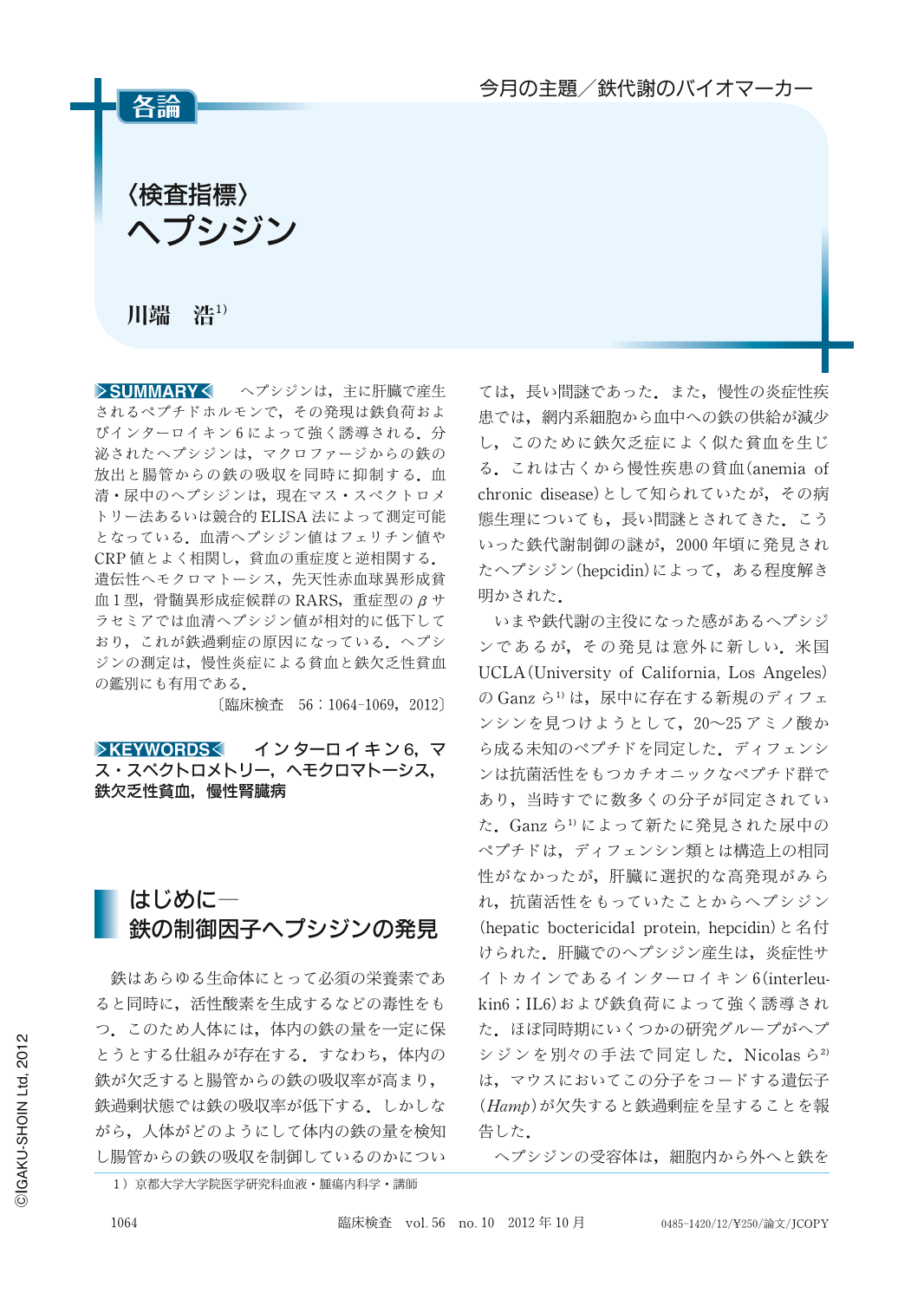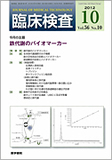Japanese
English
- 有料閲覧
- Abstract 文献概要
- 1ページ目 Look Inside
- 参考文献 Reference
ヘプシジンは,主に肝臓で産生されるペプチドホルモンで,その発現は鉄負荷およびインターロイキン6によって強く誘導される.分泌されたヘプシジンは,マクロファージからの鉄の放出と腸管からの鉄の吸収を同時に抑制する.血清・尿中のヘプシジンは,現在マス・スペクトロメトリー法あるいは競合的ELISA法によって測定可能となっている.血清ヘプシジン値はフェリチン値やCRP値とよく相関し,貧血の重症度と逆相関する.遺伝性ヘモクロマトーシス,先天性赤血球異形成貧血1型,骨髄異形成症候群のRARS,重症型のβサラセミアでは血清ヘプシジン値が相対的に低下しており,これが鉄過剰症の原因になっている.ヘプシジンの測定は,慢性炎症による貧血と鉄欠乏性貧血の鑑別にも有用である.
Hepcidin is a peptide hormone mainly produced in the liver. Hepcidin expression is induced by iron loading and interleukin-6. Serum and urine hepcidin levels can be measured by using either mass spectrometry-based assays or competitive ELISA. In general, serum hepcidin levels are well-correlated with serum ferritin and CRP levels, and inversely correlated with the severity of anemia. In patients with hereditary hemochromatosis, congenital dyserythropoietic anemia type 1, myelodysplastic anemia RARS, and β-thalassemia major, serum hepcidin levels are relatively low ; and these low serum hepcidin levels are associated with systemic iron overload commonly observed in these diseases. Hepcidin assays are also useful in the differential diagnosis of iron deficiency anemia and anemia of chronic disease.

Copyright © 2012, Igaku-Shoin Ltd. All rights reserved.


